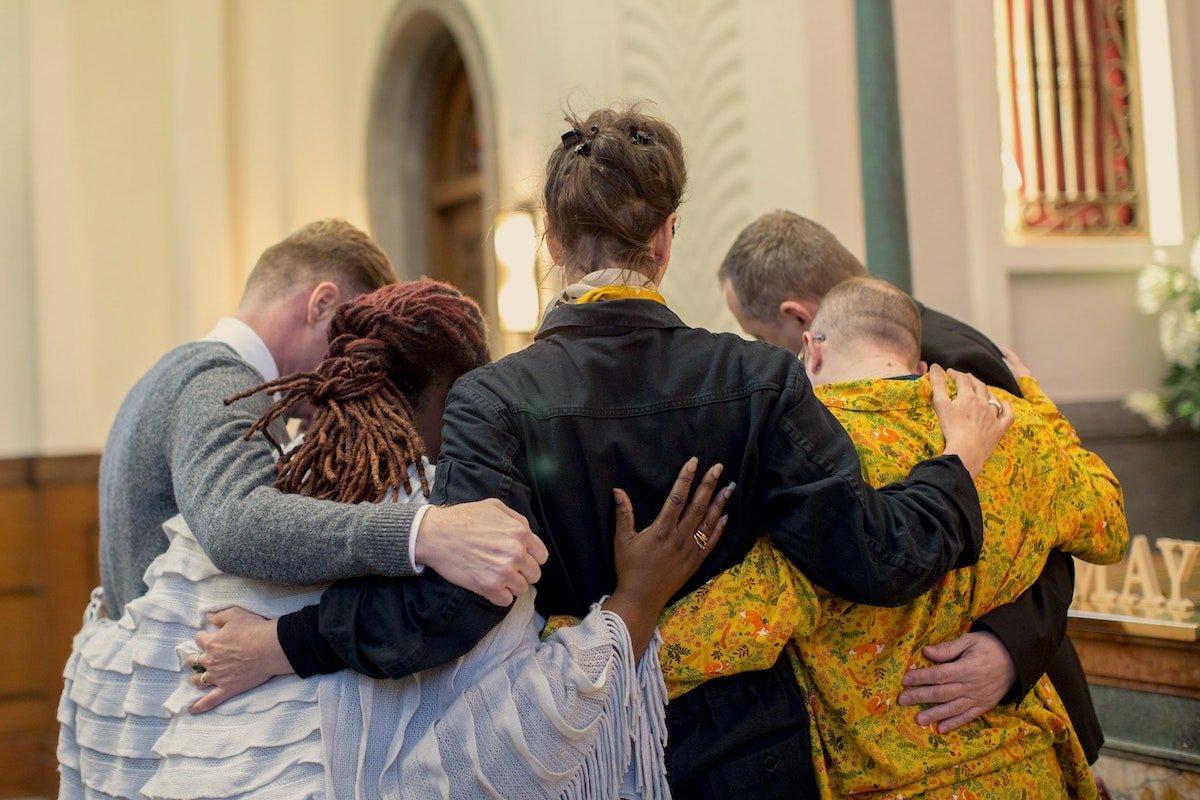Day with Dads: Overcoming Statistics Through Meaningful Connections
When we walked into the gym at the Wynne Unit, the thirty inmates stood up, applauded, and cheered. They were showing their appreciation to volunteers who had given up a Saturday so they could spend five hours interacting with their children in a world of play.
Day With Dads is a program in Texas prisons that allows inmates to interact with their children under seventeen in a casual setting. Our families gather around tables and play board games like Headbanz, Scrabble, Uno, Chutes and Ladders, and dominoes. There are jigsaw puzzles to work on together or coloring books for the younger ones. There are four basketball hoops for dads and kids to play one-on-one for thirty minutes. A volleyball net allows families to play against each other and a ping pong table is always busy.
Pizza is brought in for lunch, and the family eats together around their table. A family portrait is taken with one picture sent to the family and one picture provided to the inmate. These activities are taken for granted by most families, but these days create precious memories for families with an incarcerated father.
An Unfortunate Reality
Research and observations have shown us a grim reality: the incarceration of a parent can severely impact children and families as well as the person who is in prison. Texas Children’s Hospital published The Forgotten Families: A Needs Assessment on Children with Incarcerated Parents in Harris County, Texas. In this report, they share the following components that impact children with incarcerated parents:
Trauma from witnessing the arrest and/or criminal activity that led to the arrest
Separation from their parent
Changes in homes, schools, and caregivers
Confusion, fear, and misunderstanding of the criminal justice process, where their parent is, and when they will be reunited with their parent
Fear for their parents’ safety in jail or prison
Fear and concern for their younger siblings’ safety
Guilt for their parents’ arrest and belief that they could have prevented the incarceration
Inability for the current caregiver to meet the child’s basic needs
Inability to regularly communicate with the incarcerated parent
Sterile and chaotic visitation experiences
Stigma, shame, and isolation
Lack of appropriate support and services
Difficult family and neighborhood environments including high crime rates, poverty, violence, and substance abuse
“Parental incarceration can affect a child’s health, educational attainment, and behavior. But there’s also a lot of hope, too.”
Parental incarceration can affect a child’s health, educational attainment, and behavior. These children can experience internalizing behaviors, such as anxiety, withdrawal, hypervigilance, depression, shame, and guilt.
They may also have externalizing behaviors, such as anger, aggression, and hostility towards others. They may also exhibit antisocial behaviors, such as lying and criminal acts that go against social norms. Children with incarcerated parents are 3 or 4 times more likely to have antisocial or delinquent behaviors and twice as likely to have mental health problems such as depression. Parental incarceration has also been independently associated with learning disabilities, ADD or ADHD, behavior problems, developmental delays, and speech problems.
Hope to Help Overcome
But there is also a lot of hope for kids with an incarcerated parent. Research by Prison Fellowship shows children who continue to stay in touch with a parent in prison exhibit fewer disruptive and anxious behaviors.
There is also evidence that ongoing connection with family helps the parents as well by lowering recidivism rates and making reunification easier and more likely once the parent is released from prison. Two stories from our Day With Dad Experiences can illustrate the Prison Fellowship research.


One ten-year-old girl was participating in the Day with Dads events with her father for the first time. After thirty minutes, she asked, “This is fun. When can we do this again.?” The guardians of the children often tell us how they appreciate this opportunity and what it means to the families.
At another Day with Dads, one inmate said, “This was great. I am going to behave and not get any write-ups so I can participate in this next time.” Another father was able to address some teenage issues with his fourteen-year-old son. He told me later, “Thank you for allowing me to parent from prison.” Even the guards at the unit have told us how this event affects the behavior of the inmates who get to participate.
Other Opportunities to Serve
Ministering to the families of inmates in the prison system is crucial to stopping the cycle of children following in their parents’ footsteps into prison. Day With Dads is just one way to minister. The Bureau of Justice Statistics reports, “Parents held in the nation’s prisons—52% of state inmates and 63% of federal inmates—reported having an estimated 1,706,600 minor children.”
Schools in urban areas with high crime rates are in need of mentors. Loving Houston can connect your church to a school in need of partners for the school and mentors for at-risk children. Also, Prison Fellowship sponsors a program called Angel Tree. Through this program, an inmate can request a Christmas present for his or her children to be delivered from them.
If you're interested in helping with Day with Dads, contact Sally Hinzie.
Sally Hinzie is a Church Consultant who has worked at UBA for many years. Her primary areas of ministry focus include church planting, bible storying training, organic church, and ministry implementation.










